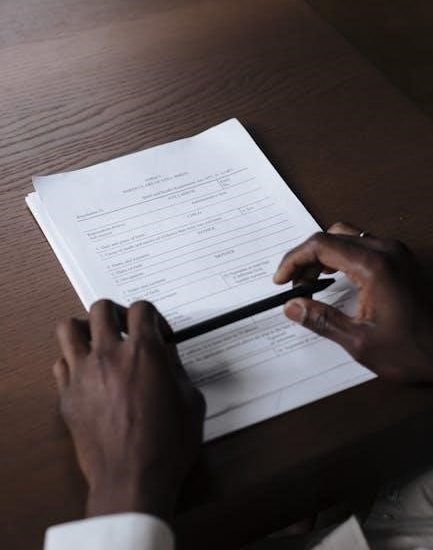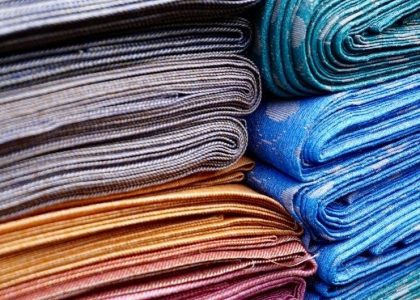The Sponsored Parent (Subclass 870) Visa allows parents of Australian citizens, permanent residents, or eligible New Zealand citizens to stay in Australia for up to 3 or 5 years.
1.1 Overview of the 870 Visa Program
The Subclass 870 Visa is a temporary visa enabling parents of Australian citizens, permanent residents, or eligible New Zealand citizens to stay in Australia for up to 3 or 5 years. It provides a pathway for family reunification, allowing extended visits without the need for frequent travel. The program is sponsor-led.
1.2 Purpose of the Sponsorship Application Form
The sponsorship application form is mandatory for approval, outlining the sponsor’s eligibility and commitment to supporting their parents. It ensures compliance with visa requirements, providing detailed personal and financial information. The form is submitted online through ImmiAccount, serving as the foundation for the sponsorship process under the Subclass 870 Visa program.
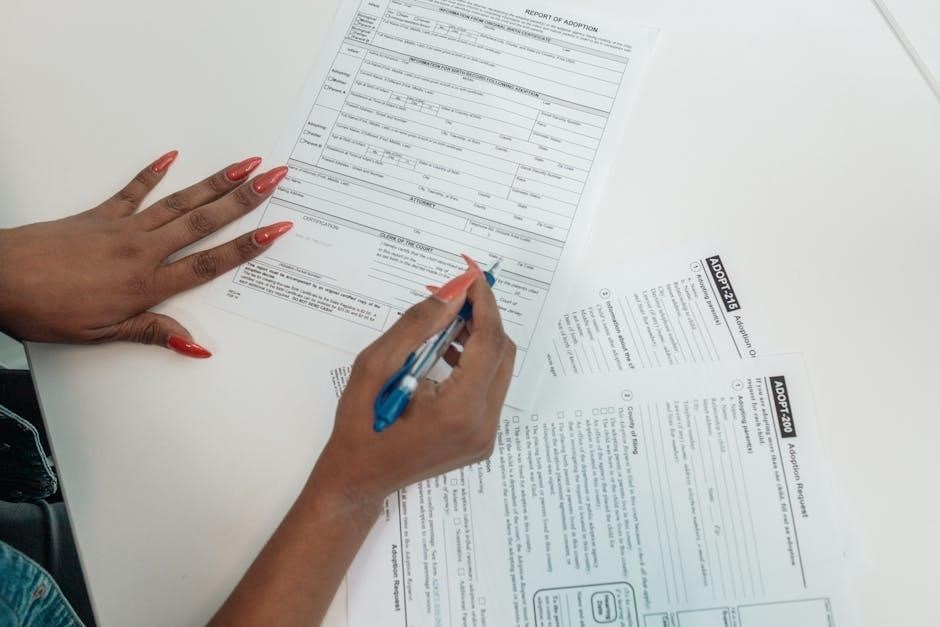
Eligibility Criteria for the 870 Visa
Eligibility includes meeting income requirements, being an Australian citizen or permanent resident, and ensuring parents are over 18, meet health checks, and have an approved sponsor.
2.1 Sponsor Eligibility Requirements
Sponsors must be Australian citizens, permanent residents, or eligible New Zealand citizens, meeting income thresholds (at least AUD 83,454.80 annually). They must be approved before parents can apply, ensuring financial and legal capacity to support the visa applicants.
2.2 Parent Eligibility Requirements
Parents must be over 18, sponsored by an approved sponsor, and meet health, character, and security checks. They must be biological, adoptive, step-parents, or parents-in-law of the sponsor. The visa allows stays of up to 3 or 5 years, providing temporary reunification with their Australian-based children.
2.3 Income and Financial Capacity for Sponsors
Sponsors must meet a minimum annual income requirement of AUD 83,454.80 to ensure they can financially support the sponsored parent. The income must be stable and recent, demonstrating the sponsor’s capacity to cover living costs without relying on taxpayer support.
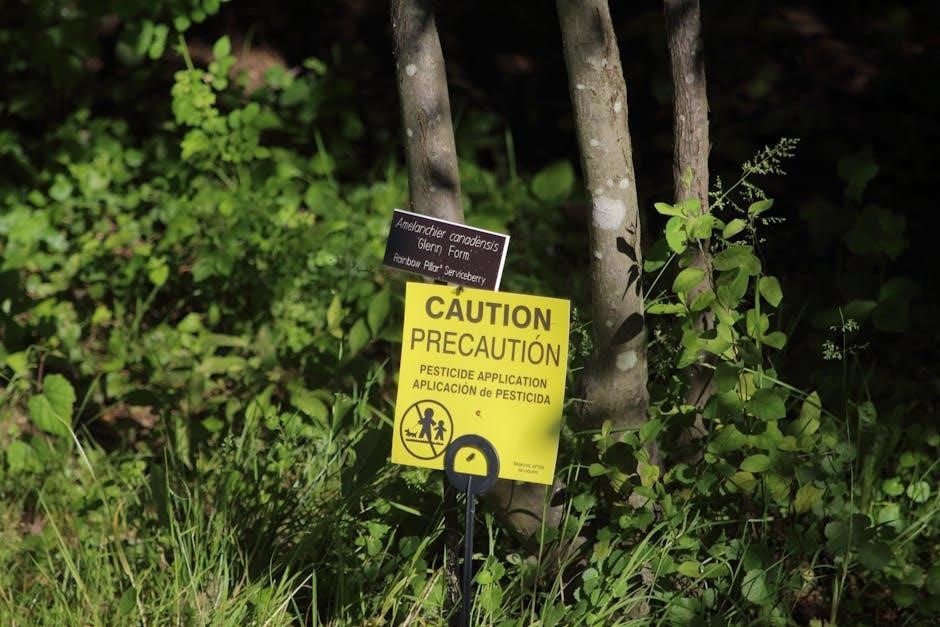
The Sponsorship Process
The sponsorship process involves submitting an online application, which, once approved, allows the parents to apply for the visa within six months of successful sponsorship approval.
3.1 Submitting the Sponsorship Application
The sponsorship application for the 870 Visa must be submitted online through ImmiAccount. The sponsor must provide required documents, including proof of citizenship or residency and financial capacity. Once approved, parents can apply for the visa within six months. Applications are processed in the Department’s Perth office, with a sponsorship application charge of AUD 420.
3.2 Required Documentation for Sponsorship Approval
Required documents include Form 956, proof of financial capacity (AUD 83,454.80 annually), identity documents, and sponsorship application confirmation. Sponsors must provide evidence of Australian citizenship/permanent residency, while parents need health and character clearances. All documents must be uploaded to ImmiAccount for processing by the Perth office.
3.3 Processing Times for Sponsorship Applications
Processing times for sponsorship applications vary, typically handled by the Perth office. Applications are generally processed within standard timeframes, but delays may occur due to incomplete documentation or high volumes. Sponsors should allow sufficient time for processing before the parent lodges their visa application within six months of approval.
Completing the 870 Visa Application Form
The application process is online and requires an approved sponsor. Parents must lodge their application within six months of sponsorship approval, with all mandatory forms included.
4.1 Online Application Process
The 870 Visa application is submitted online via ImmiAccount after sponsorship approval, typically within six months, requiring an approved sponsor, and can be lodged from Australia or overseas through the online portal for temporary stay with family.
4.2 Mandatory Forms and Attachments
The 870 Visa application requires Form 956 if using a migration agent, proof of sponsorship approval, identity documents, and evidence of financial capacity. Attachments include health and character checks, marriage certificates, and proof of relationship to the sponsor. All documents must be uploaded online via ImmiAccount for processing.
4.3 Health and Character Checks for Applicants
Applicants must undergo mandatory health and character checks to ensure compliance with Australian visa requirements. This includes medical examinations and police clearances from all countries where the applicant has lived. These checks are critical for sponsorship approval and must be completed before the visa application can be processed.

Key Features of the 870 Visa
The 870 Visa allows parents to stay in Australia for up to 3 or 5 years, providing a temporary solution for family reunification without work rights.
5.1 Visa Duration and Stay Periods
The 870 Visa offers stay durations of up to 3 or 5 years, providing flexibility for parents to live with their Australian-based children temporarily. The visa allows a cumulative stay of up to 10 years in Australia. It is a temporary visa, with no work rights, designed to facilitate family reunification without permanent residency.
5.2 Benefits of the 870 Visa for Parents
The 870 Visa enables parents to stay in Australia for extended periods (3 or 5 years), fostering family reunification. It offers a flexible alternative to shorter-term visitor visas, allowing parents to spend quality time with their children without the financial burden of permanent residency pathways or lengthy processing times.
5.3 Limitations and Restrictions of the Visa
The 870 Visa restricts employment, requiring parents to rely on their sponsor financially. Only two parents per household can be sponsored concurrently, and sponsors must meet income thresholds. The visa doesn’t provide a pathway to permanent residency and requires health and character checks, limiting accessibility for some applicants.

Fees and Charges Associated with the Application
The 870 Visa sponsorship application requires a fee of AUD 420 for the sponsorship form. Additional costs may include health checks and document processing fees.
6.1 Sponsorship Application Fee
The sponsorship application fee for the 870 Visa is a fixed, non-refundable charge of AUD 420. This fee is required to process the sponsorship application and must be paid by the sponsor. It is a one-time payment made during the sponsorship lodgment process and cannot be transferred to other applications.
6.2 Visa Application Charges
Visa application charges for the 870 Visa are not separately outlined but are typically included in the overall sponsorship process. The primary cost is the AUD 420 sponsorship fee. Additional charges may apply for health checks, character clearances, and biometric data. These costs are payable during the online application process.
6.4 Additional Costs and Expenses
Beyond the sponsorship fee, applicants may incur costs for health checks, character clearances, and biometric data collection. Additional expenses include document translation fees, medical examination charges, and potential consultancy fees for migration assistance. These costs vary depending on the applicant’s circumstances and are not included in the initial sponsorship or visa charges.
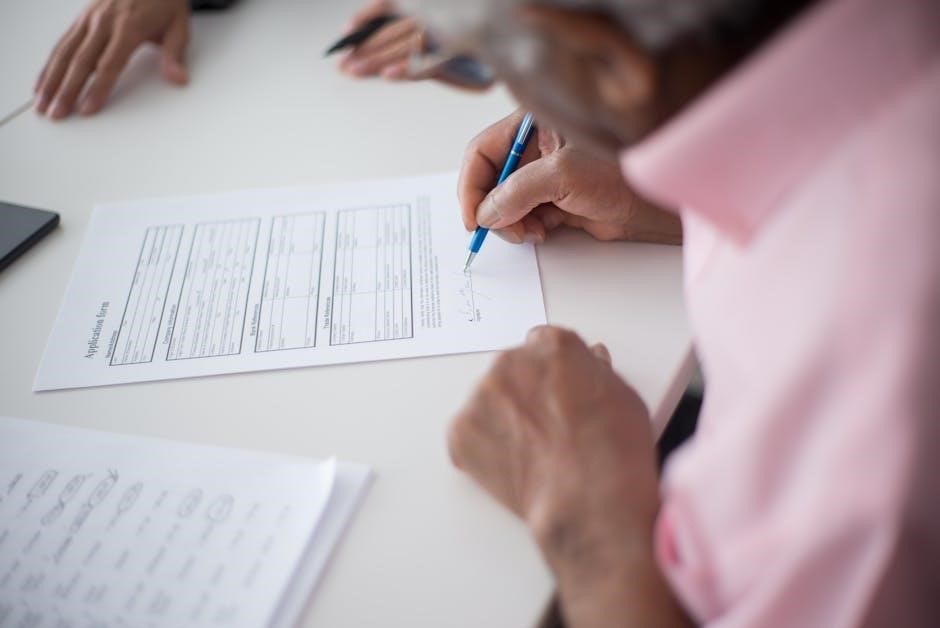
Processing Times and Visa Outcomes
Processing times for the 870 Visa vary, but applications are typically processed within several months. Approval allows parents to stay in Australia for up to 3 or 5 years.
7.1 Average Processing Time for 870 Visas
The average processing time for the 870 Visa varies, typically taking several months. Once approved, parents can stay in Australia for up to 3 or 5 years, depending on the visa grant.
7.2 Factors Affecting Processing Time
Processing times for the 870 Visa can be influenced by the speed of sponsorship approval, completeness of the application, and the quality of submitted documents. Delays may occur due to incomplete forms, additional requests for information, or lengthy health and character checks. Efficient preparation ensures faster processing.
7.3 What to Expect After Submission
After submitting the 870 Visa application, you will receive an email confirmation. Processing begins, and you may be requested to provide additional documents. Once approved, the visa is granted for 3 or 5 years. Parents can then travel to Australia, staying for the approved duration. No work rights are included.
Common Mistakes to Avoid
- Incomplete or inaccurate sponsorship application forms.
- Missing required documentation, such as proof of income or identity.
- Exceeding the household sponsorship limit of two parents.
8.1 Errors in Sponsorship Applications
Common errors in sponsorship applications include incomplete forms, missing financial proofs, and exceeding the household limit of two parents. Ensure all documents, like income evidence, are submitted accurately and on time to avoid delays or rejection. Double-check eligibility criteria before lodging the application to prevent issues.
8.2 Common Issues in Visa Applications
Common issues include incomplete applications, missing health or character clearances, and insufficient financial capacity. Ensure all required documents are attached and meet eligibility criteria. Parents must hold valid passports and comply with health and security checks. Submitting applications within the required timeframe is crucial to avoid delays or rejection.
8.3 Tips for a Smooth Application Process
Prepare all required documents in advance, ensuring accuracy and completeness. Submit applications within the six-month window after sponsorship approval. Verify health and character clearances are up-to-date. Double-check financial capacity and eligibility criteria. Consider seeking professional assistance to avoid errors. Ensure clear communication with sponsors and applicants throughout the process for timely approval.
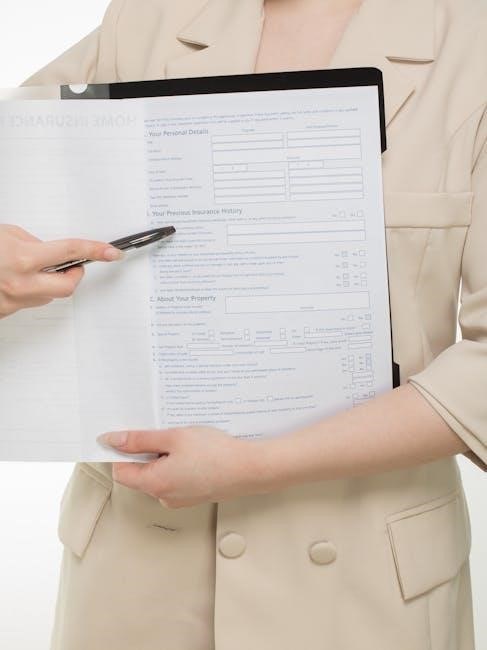
Comparing the 870 Visa to Other Parent Visas
The 870 Visa offers longer stays than Visitor Visas and is more cost-effective than permanent contributory parent visas, making it ideal for temporary family reunification without significant financial commitments.
9.1 Difference from Permanent Parent Visas
The 870 Visa is a temporary option, offering stays of up to 3 or 5 years, unlike permanent parent visas, which provide lasting residency. It doesn’t require the balance of family test, making it more accessible for parents with children in multiple countries, while permanent visas often involve higher costs and longer processing times.
9.2 Comparison with Contributory Parent Visas
The 870 Visa is a temporary option, while Contributory Parent Visas offer permanent residency. Contributory Parent Visas require a significant financial contribution, whereas the 870 Visa does not. The 870 Visa allows stays of up to 3 or 5 years, making it ideal for shorter-term family reunification without the long-term financial commitment of contributory visas.
9.3 Advantages of the 870 Visa Over Visitor Visas
The 870 Visa offers longer stay durations of up to 3 or 5 years, unlike Visitor Visas with shorter limits. It also provides a pathway for family reunification and requires sponsorship, ensuring a more secure and structured application process compared to the more restrictive and short-term nature of Visitor Visas.

Recent Updates and Changes
Recent updates include extended stay periods and revised income requirements for sponsors. The 870 Visa now offers more flexible processing options and improved application tracking features.
10.1 Latest Policy Changes in 2024-2025
The 2024-2025 updates include an 18-month concession for SC 870 visa holders impacted by COVID-19, allowing extended entry periods. Processing times have been optimized, and income thresholds for sponsors have been adjusted to ensure financial capacity aligns with current economic conditions, providing applicants with clearer guidelines and improved processing efficiency.
10.2 Impact of COVID-19 on Visa Processing
COVID-19 caused delays in processing Sponsored Parent (Subclass 870) visa applications due to restricted operations. An 18-month concession was introduced for visa holders unable to enter Australia, allowing extended entry periods. Additionally, the Department prioritized processing and implemented digital application enhancements to manage backlogs and ensure continuity during the pandemic.
10.3 Future Developments in Parent Visa Programs
Future developments may include streamlined digital applications, potential increases in visa durations, and enhanced pathways for transitioning to permanent residency. Considerations for flexible work permits and expanded sponsorship capacities are also possible, aiming to improve family reunification and adapt to evolving demographic needs.
The 870 Visa offers a pathway for parents to reunite with their families in Australia, providing extended stay options while ensuring a streamlined sponsorship process.
11.1 Final Tips for Applicants
Ensure all documents are complete and meet eligibility criteria. Submit applications within six months of sponsorship approval. Double-check health and character requirements. Seek professional assistance if unsure. Lodge applications online through ImmiAccount. Avoid delays by ensuring accurate information. Understand the visa’s conditions, including no work rights. Plan accordingly for extended family reunification in Australia.
11.2 Importance of Professional Assistance
Engaging a migration agent or legal expert can significantly simplify the 870 visa process. They ensure compliance with requirements, avoid errors, and expedite submissions. Professionals also provide tailored advice, helping applicants navigate complex documentation and eligibility criteria, ensuring a smooth and efficient experience throughout the sponsorship and visa application journey.
11.3 Summary of the 870 Visa Program
The 870 Visa Program offers a pathway for parents to reunite with their Australian-based children, providing temporary stay options of up to 3 or 5 years. It requires sponsorship by an approved parent sponsor, ensuring a structured and secure process for family reunification while maintaining financial and social responsibilities.

